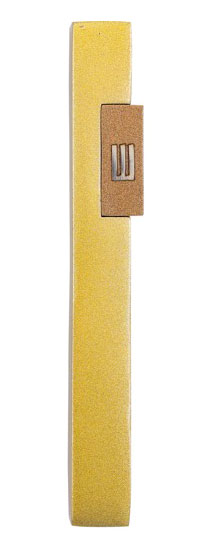The Mezuzah in Jewish Faith
2023 May 10th
Judaism is a religion with rich traditions and customs. One of the most widely known and easily recognizable symbols of Jewish faith is the mezuzah. A mezuzah is a small case that is placed on the doorpost of a Jewish home. It contains a piece of parchment that is inscribed with verses from the Torah, specifically Deuteronomy 6:4-9 and 11:13-21. These verses, known as the Shema, are the declaration of faith in one God that is central to Jewish belief.

The practice of hanging a mezuzah on the doorpost of a Jewish home has been around for centuries, and it is still observed by many Jews around the world today. But why do Jewish people hang mezuzahs on their doorposts? There are several reasons why this tradition is so important to the Jewish faith.
First and foremost, hanging a mezuzah is a way of fulfilling the commandment found in Deuteronomy 6:9: "And you shall write them on the doorposts of your house and on your gates." This commandment is part of the Shema, which is recited daily in Jewish prayers. By hanging a mezuzah on their doorpost, Jews are following this commandment and fulfilling their obligation to God.
Beyond fulfilling a commandment, hanging a mezuzah is also a way of affirming one's Jewish identity. For many Jews, the mezuzah serves as a visible reminder of their faith and their connection to their heritage. It is a way of declaring to the world that this is a Jewish home, and that the people who live here are proud of their identity and their traditions.
The mezuzah is also a symbol of protection. According to Jewish tradition, the mezuzah has the power to ward off evil and protect the home and its occupants. This belief is rooted in the biblical story of the Passover, when the Israelites marked their doorposts with the blood of a lamb as a sign to God to spare their homes from the plague that would strike the Egyptians. Just as the blood on the doorpost protected the Israelites, the mezuzah is believed to protect the Jewish home and its inhabitants.
In addition to its protective qualities, the mezuzah also serves as a reminder of the importance of God's word. The parchment inside the mezuzah case contains the Shema, which is a declaration of faith in one God. By hanging a mezuzah on their doorpost, Jews are reminded to live their lives in accordance with God's teachings and to follow the commandments found in the Torah.
Finally, hanging a mezuzah is a way of bringing holiness into the home. The mezuzah is a symbol of God's presence, and by hanging it on the doorpost, Jews are inviting that presence into their home. It is a way of creating a sacred space, where God's presence can be felt and where Jewish traditions and values can be lived out.
In conclusion, the tradition of hanging a mezuzah on the doorpost of a Jewish home is an important and meaningful practice in the Jewish faith. It serves as a way of fulfilling a commandment, affirming Jewish identity, protecting the home and its occupants, reminding Jews of the importance of God's word, and bringing holiness into the home. For these reasons and more, the mezuzah remains a powerful symbol of Jewish faith and tradition, and it is likely to continue to be an important part of Jewish life for generations to come.
